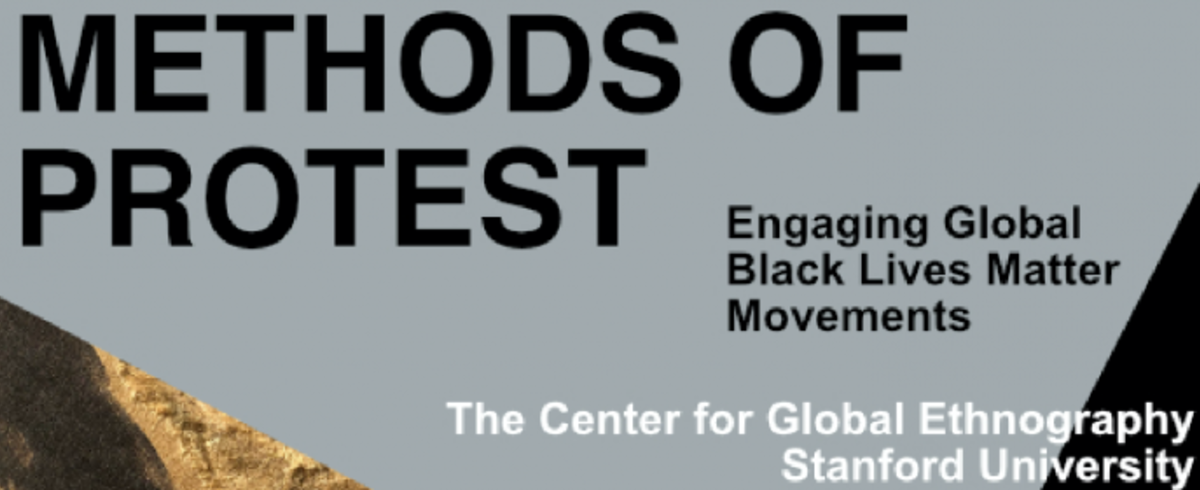Global Ethnography Programs & Resources

Interdisciplinary Workshops for Bay Area Ethnographic Writers
Upcoming workshops are scheduled for March 8, April 5, April 12, and May 3, from 9:30AM-4:30PM.
Come share the joy (and hurdles) of ethnographic writing with classmates from across the Bay Area.
Register now for our upcoming interdisciplinary workshops.
This workshop series aims to help post-field doctoral students generate ethnographic prose and nurture new scholarly community. Each day-long workshop will be in-person only and free. Complimentary lunch, coffee/tea and snacks will be provided. Space is limited.
We promise to offer opportunity for peer-to-peer discussion of work-in-progress, cordial and relaxing atmosphere for writing, thinking, eating, and hanging out, and resource and morale support for ABD students who may feel isolated from the intellectual community.
A day. . . with interdisciplinary minds from Stanford, UC Berkeley and UC Santa Cruz. A peaceful location. And creative interlocutors supporting each other in breaking free of the mold.
ELIGIBILITY
All-but-dissertation (ABD) doctoral students of any discipline from any university located in the San Francisco Bay Area will be considered. Priority will go to students whose dissertations include a tangible ethnographic component.
STRUCTURE/PROGRAM
The workshops will include but not be limited to (a) student-to-student feedback on participants' texts, (b) periods of ethnographic writing during strings of 25-minute "pomodoros," and (c) breakout and group sessions to discuss emerging topics. To facilitate workshopping, participants will have opportunity to share in advance with one another 5-10 pages (rough first drafts welcomed!) drawn from their dissertations, pages having an ethnographic emphasis.
Morning: briefing, breakout groups & workshopping, writing sessions
Noon: lunch & walk & hangout
Afternoon: workshop and/or writing sessions
APPLICATION TIMELINE
We ask prospective participants to please kindly sign up for all remaining sessions by March 24. Please note that you may sign-up for as many sessions as you'd like. Notification will be made the week of March 25. Attendees are expected to submit the works they would like to share 2–3 days prior to the workshops.
LOCATION
Our venue will be the Institute for Research in the Social Sciences (IRiSS), tucked away in the wooded hills above Stanford. To help defray travel costs to/from Palo Alto, we can offer participants a supplement in the form of a gift card, on request. Parking at IRiSS is free.
CONTACT
For questions and concerns, please contact the workshop coordinator shan5 [at] stanford.edu (Shan Huang).
The Center for Global Ethnography’s writing workshop gave me the space to write in community with others and nature. I was able to get started on my very first dissertation pages after weeks of roaming ... If you have not started, or have started but you’re feeling stuck, losing momentum or motivation, the sound of the birds in the woods, a very generous writing community, and the coffee/food will get you somewhere.
Past Programs

Methods of Protest: Engaging Global Black Lives Matter Movements
Violence against Black people is far from confined to the U.S. Neither are the social movements currently protesting anti-Black violence. The goal of this event and video series is to broaden our awareness and understanding of these movements in different areas of the world. This quarter we are hosting two live online events and producing two pre-recorded videos to build conversations around the Black Lives Matter movement in the Bay Area, Australia, and Italy. Our aim is to think collectively about how ethnographers can study #BLM abroad and in the United States by reflecting both on their methods of protest and the ethnographic methods employed to study them.
Doing Ethnography Remotely
In a series of pre-recorded videos, available here for viewing, Sharika Thiranagama (Anthropology) and Sylvia Yanagisako (Anthropology) speak with experienced ethnographers on how they have used digital and analog methods for remote ethnographic research. The conversations reflect on how these methods have shaped each practitioner’s research questions and findings. All conversations conclude with practical advice for graduate students adapting their projects in the wake of the COVID-19 pandemic.
Reading List
Below is a list of works referenced in the interviews, as well as select texts by the authors, related to remote ethnography.
- Boellstorff, T., Nardi, B., Pearce, C., & Taylor, T. L. (2013). Ethnography and Virtual World: A Handbook of Method. Princeton, NJ: Princeton University Press. LINK.
- Bonilla, Y., & Rosa, J. (2015). "#Ferguson: Digital protest, hashtag ethnography, and the racial politics of social media in the United States." American Ethnologist, 42(1), 4–17. LINK.
- Braverman, I. (2018). Coral whisperers: Scientists on the brink. Oakland, California: University of California Press. LINK.
- ---. (2017). "Captive: Zoometric Operations in Gaza." Public Culture, 29(1 81), 191–215. LINK.
- ---. "Renouncing Citizenship as Protest: Reflections by a Jewish Israeli Ethnographer." Critical Inquiry, 44(2), 379–386. LINK.
- Hine, C. (2015). Ethnography for the Internet: Embedded, embodied and everyday. New York: Bloomsbury Academic. LINK.
- Jackson, John L. “An Ethnographic Filmflam: Giving Gifts, Doing Research, and Videotaping the Native Subject/Object.” American Anthropologist 106, no. 1 (2004): 32–42. LINK.
- Keeling, Kara. “Passing for Human: Bamboozled and Digital Humanism.” Women & Performance: A Journal of Feminist Theory 15, no. 1 (January 1, 2005): 237–50. LINK.
- Pink, S., Horst, H. A., Postill, J., Hjorth, L., Lewis, T., Tacchi, J. (2016). Digital ethnography: Principles and practice. Sage. LINK.
- Rufas, A., & Hine, C. (2018). "Everyday connections between online and offline: Imagining others and constructing community through local online initiatives." New Media & Society, 20(10), 3879–3897. LINK.
- Sanjek, R., & Tratner, S. W. (Eds.). (2016). eFieldnotes: The makings of anthropology in the digital world. Philadelphia, PA: University of Pennsylvania Press. LINK.
